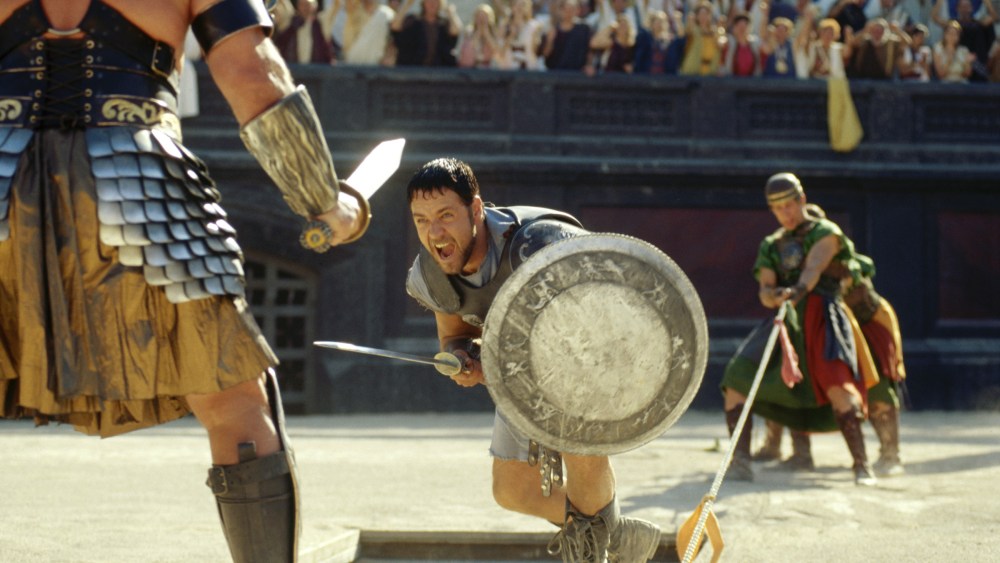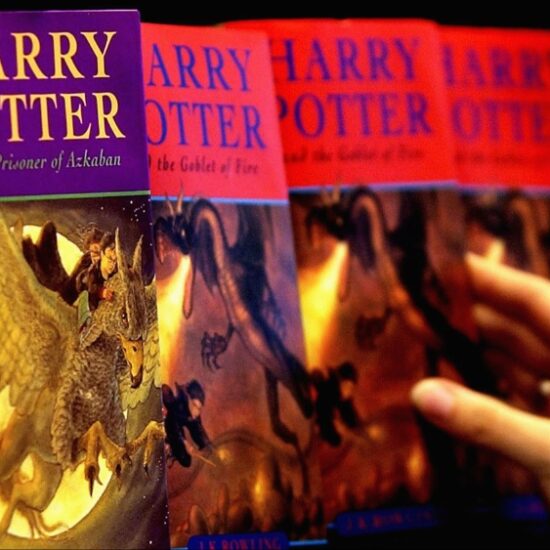
If you purchase an independently reviewed product or service through a link on our website, Variety may receive an affiliate commission.
There’s an often-stated, invented fact that men think about sex every seven seconds. While psychologists have mostly disproven the fun factoid, TikTok may have helped prove that it’s not sex that men are thinking about at all times but…the Roman Empire.
In thousands of posts shared on social media, women have been asking the men in their lives how often they think about the Roman Empire. “I thought about it yesterday, I thought about it today. On average, half of the days, but sometimes I think about it every day,” one says.
“Constantly,” another says without a shred of sarcasm.
In the few videos in which the men are pressed to explain this apparently rabid fascination, they cite its inarguable influence on everyday American life — from our structure of government to highways to architecture. Some can’t get past that it’s “just cool.”
Many seem to have recently watched Ridley Scott’s “Gladiator” (now streaming on Prime Video).
If you’re someone who can’t stop thinking about the Roman Empire, or simply want to better understand a partner or friend that can’t stop thinking about the Roman Empire, the four books below do the best job at telling the rise and fall of the largest and most enduring civilization in history. If you prefer to listen to the ancient lore, you can sign up for this 30-day free trial on Audible.
SPQR: A History of Ancient Rome
In 2016’s “SPQR,” Mary Beard passionately narrates the history of Rome, spanning nearly a thousand years of history in a highly informative and readable prose. Critics have praised the 600-page tome for its nuanced attention to class, democratic struggles and the lives of entire groups of people often omitted from the historical narrative. It follows Beard’s 2007 book “The Roman Triumph.”
The History of the Rise and Fall of the Roman Empire
Edward Gibbon’s six-volume “History of the Decline and Fall of the Roman Empire (1776-88)” is widely considered the most definitive and ambitious narratives about the ancient European civilization. The series spans thirteen centuries’ of rulersm wars and societal changes — and the events that led to its disastrous collapse.
Are We Rome? by Cullen Murphy
In “Are We Rome?” Cullen Murphy draws insightful parallels between the U.S in the 21st century and the Roman Empire in the 4th and 5th centuries. While much of the historical accounts are pulled from Gibbons’ momentous anthology, which also makes pointed comparisons between the Roman Empire and other societies, Murphy is able to provide a new perspective with even more contemporary examples from a post- 9/11 world.
The Twelve Series by Suetonius
The often-cited “The Twelve Caesars” is a set of twelve biographies of Julius Caesar and the first 11 emperors of the Roman Empire. Written by Roman historian Suetonius in 121 AD during the reign of the emperor Hadrian, the 500-page compendium is the most popular work of Suetonius, who at the time of the writing was Hadrian’s personal secretary.

















